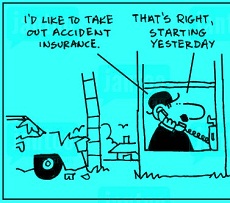“Conman Secures Millions in Fraudulent Insurance Settlement”
Is it easy to cheat insurers to claim money? A true story about how a conman cheated an insurance company. Revealing the complexities and risks involved in the garment industry. Learn the details in this true story. Conman Secures Full Insurance Settlement
Garment Factory Fire
Garment factories need a lot of labour. As Malaysian manufacturers face fierce competition from Cambodia, Vietnam, China, and India, the industry is struggling to survive in this chaotic environment.
One morning, a fire engulfed an export-based garment factory in a small town. The entire building and its contents turned to ashes, with only the skeletal structure remaining. Fortunately, no injuries were reported.
Conman Secures Full Insurance Settlement
Calm Owners
The next morning, the factory owners enjoyed breakfast at a newly opened business-class hotel, appearing calm despite the disaster.
Reporters asked them, “Did you know your factory had been razed to the ground?
“Yes, we know. There’s nothing we can do. Let the insurer handle it,” the couple replied calmly.
“What is the estimated loss?” the reporters inquired.
“A few million dollars,” they responded.

Arson
The initial adjuster’s report matched the fire brigade report, suggesting a short circuit caused the fire. However, the insurer suspected foul play. A foreign adjuster gathered ash samples but was soon arrested for trespassing. The factory owners had called the police.
When a claim is made, the insured’s rights are transferred to the insurer. It allowed the insurer’s adjuster to enter the premises without prior approval. The local insurer bailed out the foreign adjuster. A forensic report later confirmed arson, as traces of kerosene were found in the ashes.
Laugh to the Bank
The full settlement cheque was about to be issued. However, further investigation revealed that an overseas buyer had rejected a shipment worth half a million dollars due to poor workmanship. The seller had to pay ocean freight and other expenses. Since the branded shirts could not be sold in the foreign market, they had to be sold at a night bazaar for a fraction of their value, resulting in a loss of $375,000.
Further financial investigation exposed the company’s precarious situation. The confirmed letter of credit was used to apply for pre-export credit refinancing from a local commercial bank, successfully obtaining 80% of the letter of credit. It was revealed that the local adjuster and authorities had been bribed by the conman couple, who also paid for the arson, hoping the insurer would pay out the over-insured amount.
Such fraudulent over-insurance poses a high moral hazard to the insurance industry.
New Details About Financial Support
The bank provided pre-shipment financing for purchasing textiles with a confirmed letter of credit. This financing included a 4% interest per annum with a 90% advance payment. The couple was poised to receive money from both the insurer and the bank, highlighting the complexity and potential deceit in the financial and insurance sectors.
Victim Couple
The factory owners, appearing as victims, claimed to be unaware of any wrongdoing. They maintained that they had followed all procedures correctly and relied on the systems in place. The conman’s deceitful actions put a spotlight on how easily complex financial instruments and insurance policies can be manipulated, emphasizing the need for rigorous checks and balances to prevent such fraud.
Pre-shipment Financing:
Pre-shipment financing is a loan provided to exporters to finance the purchase of raw materials, production costs, and other expenses before the goods are shipped. This financial support ensures exporters have the necessary funds to fulfil orders and meet production deadlines.
Example: An exporter in Malaysia receives an order from a foreign buyer. They need funds to buy textiles and cover manufacturing costs. The bank provides pre-shipment financing, allowing the exporter to produce and ship the goods on time. This loan typically comes with a low interest rate, like 4% per annum, to make it affordable.
Confirmed Letter of Credit
A confirmed letter of credit is a guarantee from a bank that the seller will receive payment for their goods, provided they meet the terms and conditions specified in the letter. This type of letter of credit involves two banks: the issuing bank (buyer’s bank) and the confirming bank (seller’s bank). The confirming bank adds its guarantee, ensuring payment even if the buyer or the issuing bank fails to pay.
Example: A garment exporter in Malaysia sells products to a foreign buyer. The buyer’s bank issues a letter of credit, guaranteeing payment once the goods are shipped and the documents are presented. The exporter’s bank confirms this letter of credit, adding an extra layer of security. If the buyer or their bank cannot pay, the confirming bank will ensure the exporter gets paid.
What is the margin of financing?
The margin of financing for pre-shipment with a confirmed letter of credit can be quite high, often up to 95% of the value of the export order. This means can receive up to 95% of the order value in advance to cover production and other related costs. The remaining 5% is usually covered by the exporter’s funds or other financing sources.
These financial instruments are vital in international trade, providing exporters with the necessary funds and security to conduct business confidently.
If you like my article.
Please share it with your friend or family member. Sharing is joy doubles. I welcome any suggestions and comments, or you can subscribe to my mailing list.
Please email me at [email protected].
Thanks

Great story! Never heard of it until now. It’s amazing what some people might make in order to get some money. Where did it took place?
Thanks for reading my article and comment. Never mind which country, the world is full of conmen, one need to be very careful dealing with people.
Hi,
I’m a little confused by your story. So, did they get away with it? Because it seems that the insurance company was very suspicious of the claim. Why would they issue the owners a check? The insurance company will never issue a check without doing their investigation, and as it turns out the insurance company discovered arson. Furthermore, even if the owners received a check, they can still face criminal charges if arson is suspected. What’s your take on this?
The insurer is above to issue a cheque, but it holds back found it was a bit fishy. In the end, the conman does not get a single cents from the insurer and the insured had been blacklisted by the insurance company.
It is not easy to cheat insurer as there an army of experts to deploy to help them.
Your site is going to help a lot of people, I am always afraid when it comes to insurance claim because I don’t understand a thing when they use all that jargon words and legal stuff.
Thanks for reading my article and comment. Yes, insurance jargon even some of the lawyers don’t understand it, what more to say the general public. Unless you are trained and get a chartered insurance, otherwise, it is hard to grasp the technical word. A sentence with more than 100 over words is common. It is very confusing and misleading.